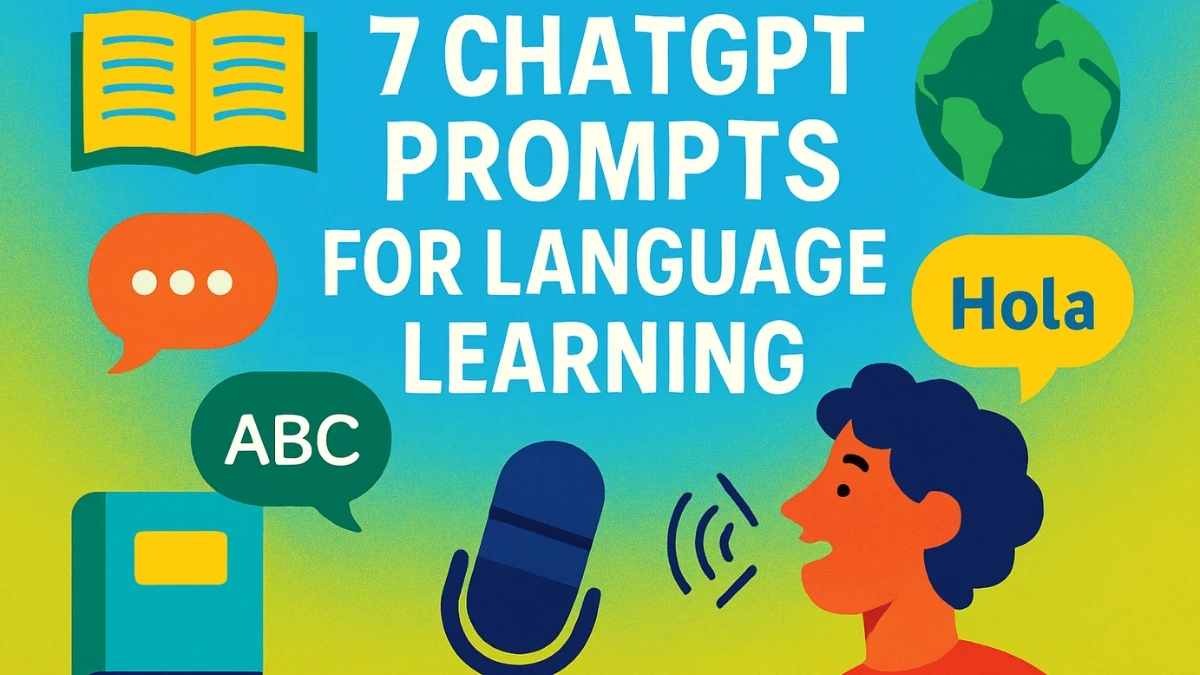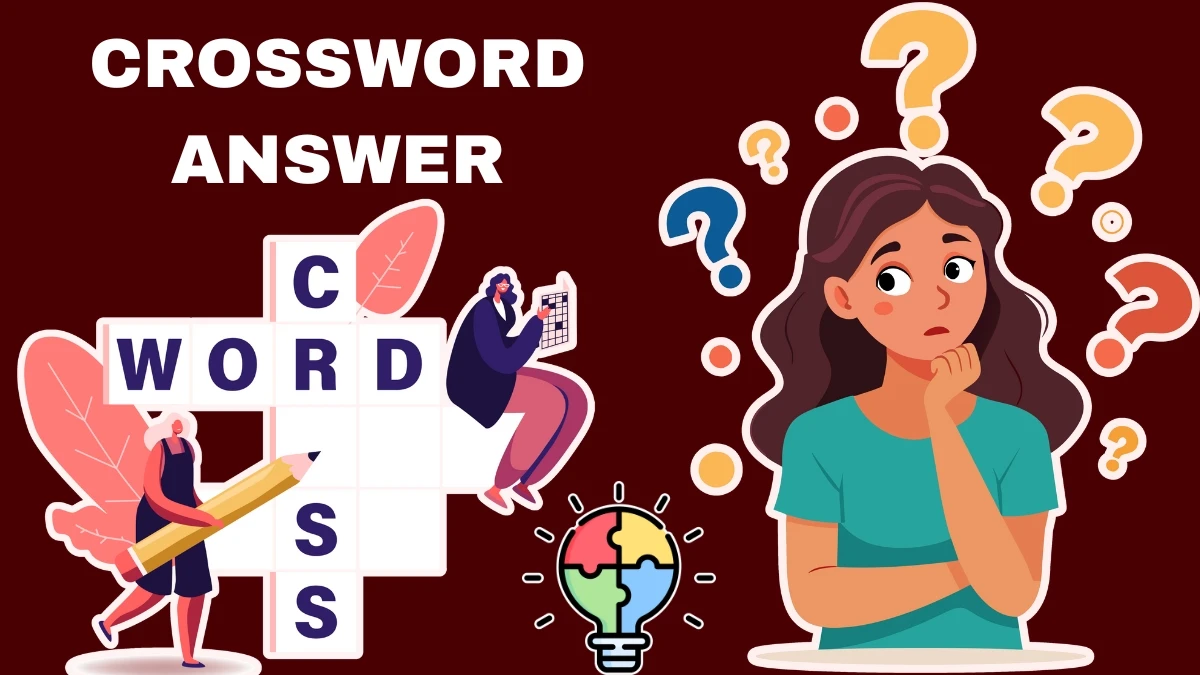Master Any Language: 7 Powerful ChatGPT Prompts You Should Try
Unlocking a new language doesn’t have to feel overwhelming or tedious. Thanks to powerful AI tools like ChatGPT, anyone can now build language skills faster, easier, and more enjoyably, a perfect fit for busy professionals, students, or hobbyists who want efficient results without expensive lessons.
ChatGPT goes beyond basic translations or textbook exercises; it acts as a personalized tutor that’s always available, offering instant feedback, tailored practice, and real-life conversations.
With the right prompts, learners can master everything from common vocabulary and grammar rules to everyday speaking and cultural understanding, all at their own pace.
From practicing conversations to boosting vocabulary, correcting mistakes, or even role-playing real-world scenarios, specific ChatGPT prompts can transform language study from a solitary task into an engaging, interactive journey.
In this article, discover seven simple but effective ChatGPT prompts that anyone can use daily to accelerate their learning and grow confidence in any language they choose.
Whether aiming for a new job, travel, exams, or personal growth, these prompts are practical, beginner-friendly, and proven to help users speak, write, and understand a new language with less stress and more fun.
7 ChatGPT Prompts You Can Use to Improve Your Language Skills
1. Starting from Scratch: Creating a Weekly Learning Plan
Explanation:
- If you're new to English and don’t know where to begin, it’s essential to build a strong foundation. A weekly plan provides structure, guiding you through basic grammar, vocabulary, and pronunciation. This step-by-step approach helps break down the process into manageable tasks.
Prompt 1:
-
"I don't know any English. Can you create a weekly learning plan starting from scratch?"
Why It Works:
- Starting with a plan that outlines specific daily tasks will make your learning journey more organized and less overwhelming. It ensures that you cover all the necessary aspects of language acquisition, like listening, reading, speaking, and writing, at a manageable pace.
2. Assessing Your Language Level: Mini Test for Language Assessment
Explanation:
- Before creating an effective learning plan, it’s crucial to understand where you currently stand. A mini test can measure your reading comprehension, vocabulary, and grammar skills, which helps in creating a personalized learning path.
Prompt 2:
-
"Give me a mini test to measure my language level and suggest a program based on the results."
Why It Works:
- Testing your level helps to tailor the learning process to your current skills. It prevents you from wasting time on content that’s too advanced or too basic. A customized program based on your test results can maximize learning efficiency and target areas where you need the most improvement.
3. A 3-Month Roadmap from A1 to B2 Level
Explanation:
- This is a long-term learning goal that provides a clear roadmap from beginner (A1) to intermediate (B2). By breaking down the journey into smaller, achievable milestones, you can stay motivated and see measurable progress.
Prompt 3:
-
"Draw a 3-month roadmap to go from A1 to B2 level."
Why It Works:
- A roadmap gives you clear goals and a sense of direction. This long-term approach helps track progress and ensures you focus on both grammar and vocabulary, speaking, listening, reading, and writing skills, without skipping key milestones.
4. 30-Minute Daily Routine for Busy Learners
Explanation:
-
If you only have 30 minutes a day, it’s crucial to make every minute count. An efficient routine prioritizes high-impact activities, focusing on language aspects that yield the quickest improvement.
Prompt 4:
-
"I only have 30 minutes a day to improve my English. Create an efficient routine for that time."
Why It Works:
-
Focused, time-efficient learning helps maintain consistency even with a busy schedule. A 30-minute routine maximizes your daily practice while ensuring a balanced approach to speaking, listening, vocabulary, and grammar.
5. Daily Vocabulary Practice with Context: Teach Me 5 Words a Day
Explanation:
-
Learning new words daily, alongside their usage in context, helps retain vocabulary better. This daily practice, combined with real-life examples, helps reinforce words in your memory, making them easier to recall when speaking or writing.
Prompt 5:
-
"Teach me 5 new words each day and use them in a short story."
Why It Works:
-
Learning vocabulary in context is more effective than memorizing isolated words. By seeing the words in sentences, you understand how they function in real communication, leading to better retention and the ability to use the words naturally.
6. Common Phrases and Grammar Equivalents: Practical Phrases for Daily Use
Explanation:
-
Common phrases are essential for everyday conversations. Knowing the casual, idiomatic ways of speaking, as well as their more formal equivalents, helps you adapt to different situations and communicate naturally in English.
Prompt 6:
-
"Give me 10 common phrases used in daily English and their classic grammar equivalents."
Why It Works:
-
This approach helps bridge the gap between casual, spoken language and formal written English. Understanding the grammar behind these phrases gives you the flexibility to switch between different registers of language, making you sound more fluent and natural.
7. Resources for Beginners: Starting with the Basics
Explanation:
- When you're unsure of your level, it’s important to first assess your skills and then start learning from foundational resources. This includes apps, textbooks, websites, and online tests that help you identify your current level and choose the right resources for learning.
Prompt 7:
- "I don't know my level, but I want to start learning. What resources should I begin with? How can I test my level first?"
Why It Works:
- Starting with beginner-friendly resources ensures that you don’t feel overwhelmed. Once you identify your level, you can target your learning materials specifically, preventing frustration and fostering a sense of accomplishment.
Taking the first step towards mastering a new language can feel daunting, but it becomes much simpler with the right support and tools.
By integrating these seven ChatGPT prompts into daily practice, learners can create a more interactive, personalized, and enjoyable study routine.
The journey to fluency is unique for every individual, but with consistent use of AI-powered techniques, anyone can make steady progress, build confidence, and achieve real results in language learning.





















































